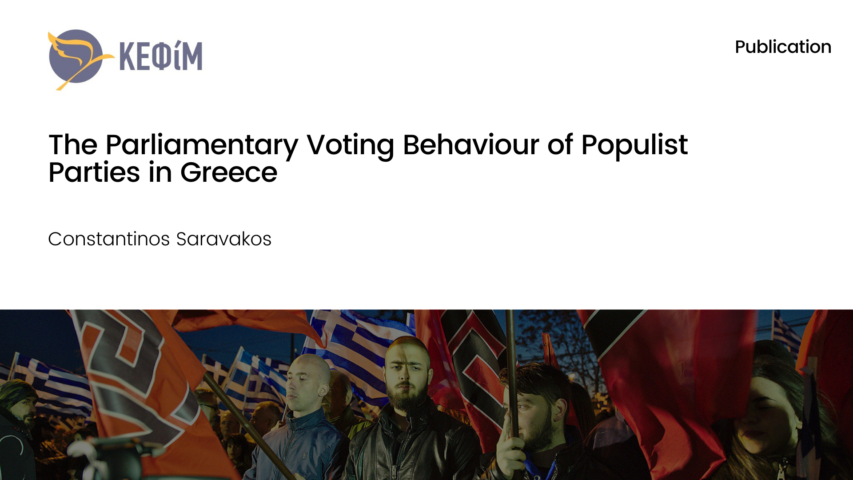The Parliamentary Voting Behaviour of Populist Parties in Greece

The Parliamentary Voting Behaviour of Populist Parties in Greece
20 June 2019
Timbro’s methodological distinction in the Authoritarian Populism Index between extreme and authoritarian populist parties is highly relevant in the Greek political environment, as shown by the parliamentary voting patterns in the period 2012 – 2018.
The parliamentary voting patterns of the Greek populist parties are significantly different from that of non-populist parties. Populists when in the opposition tend to oppose the majority bills much more often and consistently than non-populists.
The extreme parties (KKE and Golden Dawn) when in opposition follow a confrontational and rigid parliamentary voting behaviour. They remain strongly opposed to both populist (2015-2018) and non-populist (2012-2015) majorities. Despite the deep ideological differences among them, when it comes to their respective voting patterns their differences are small and insignificant.
The authoritarian parties (SYRIZA and ANEL) when in opposition exhibit a different voting behaviour. They vote against most of the bills, but less consistently than the extreme parties. SYRIZA’s voting behaviour is more confrontational and rigid than ANEL’s.
Download or share this publication
View the PDF
EPICENTER publications and contributions from our member think tanks are designed to promote the discussion of economic issues and the role of markets in solving economic and social problems. As with all EPICENTER publications, the views expressed here are those of the author and not EPICENTER or its member think tanks (which have no corporate view).



